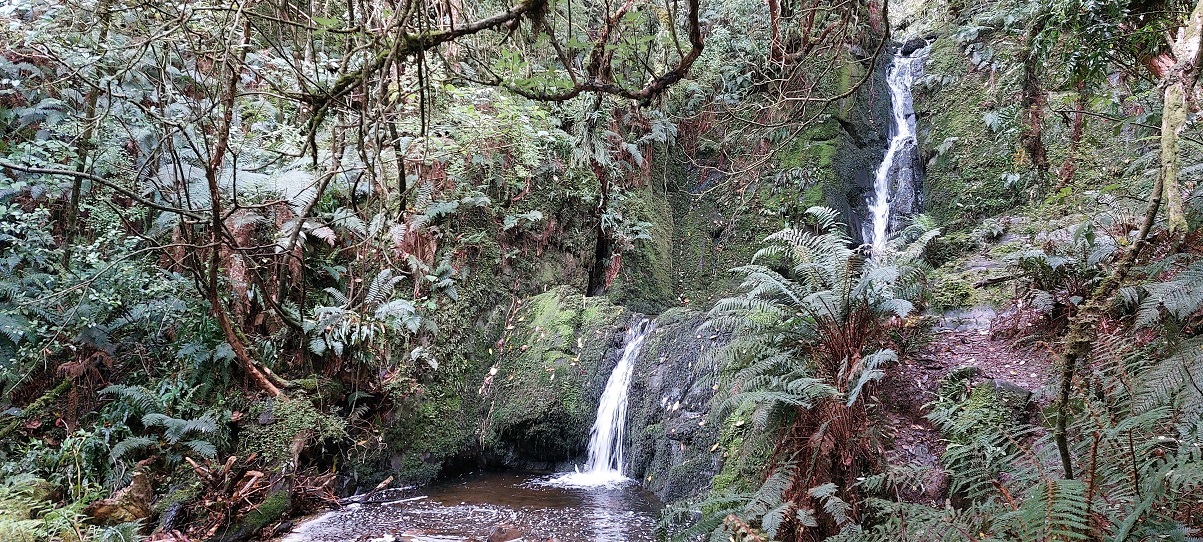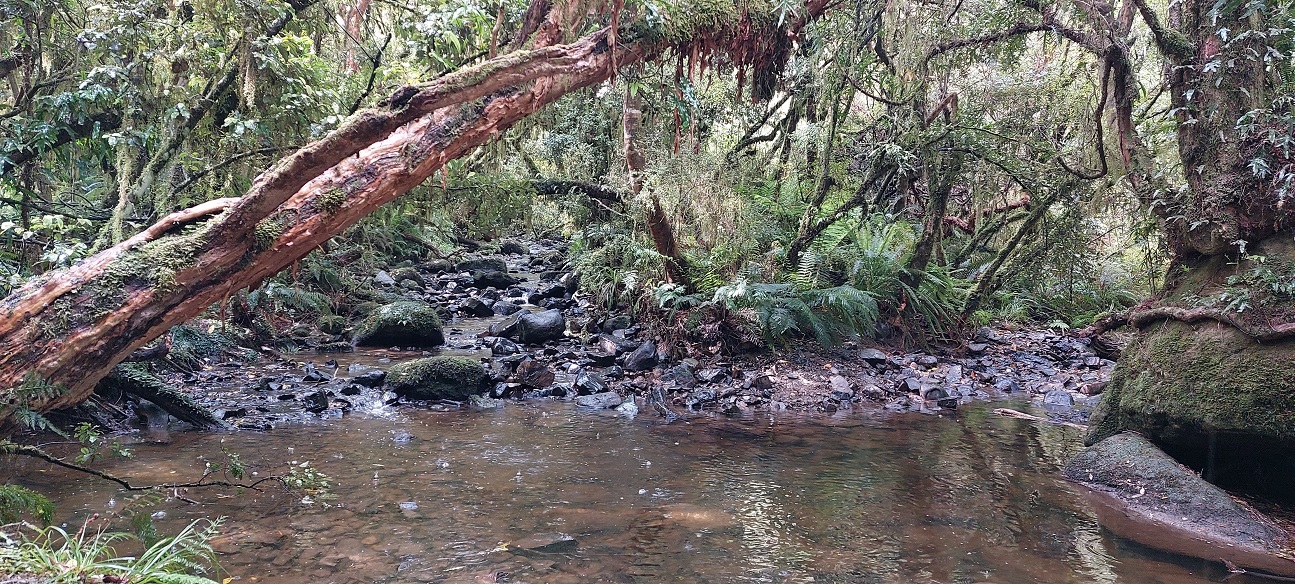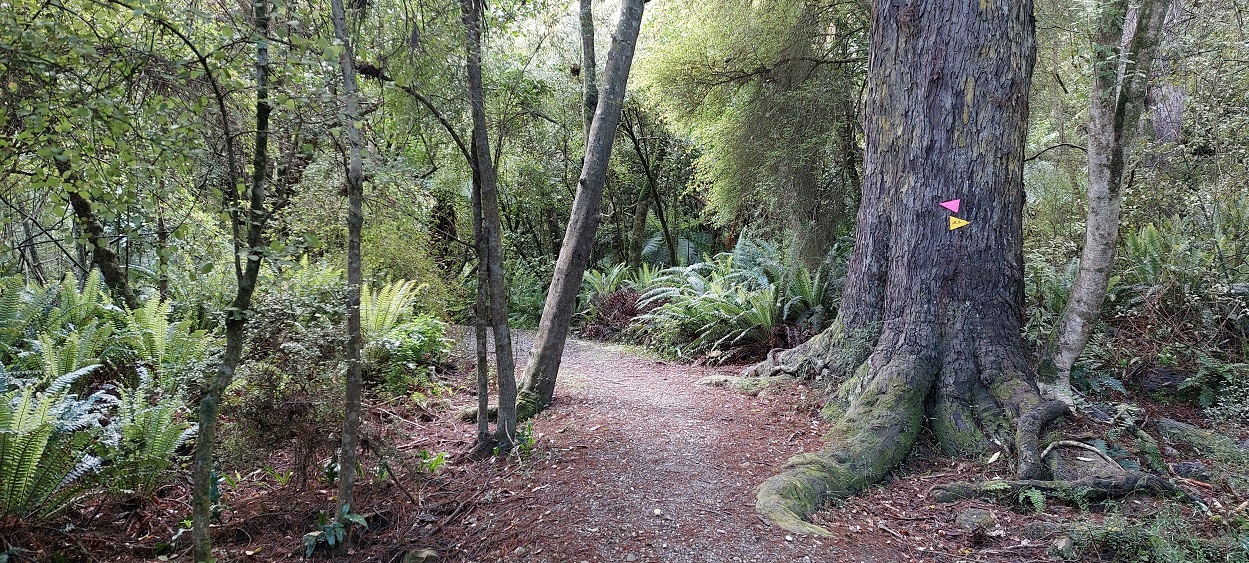
Paid work is both a blessing and a curse. It provides the goods and provides some purpose. If we’re very lucky it can also provide a teeth-clenching degree of satisfaction and if we’re normal, possibly a heck of a lot of angst.
Croydon Bush provided me with a great deal of early career satisfaction. Near career’s end, Irecently visited Dolamore Park for the first time since then, a trippy trip.
The hour-long Dolamore Loop Track is administered by the Department of Conservation and in the mid 1990s was a one-way narrow bush track up to an outpost of a lookout. The lookout is still there and takes in the Hokonui Hills, of moonshine fame, and the district’s fertile farming plains.
Back then, Doc widened the existing track and cut a new piece of connecting track to form a complete loop. A senior colleague nurtured me into choosing some of the route as part of my job of creating interpretation signs. Recently, Irewalked the track and discovered the signs are still there.

But what a spot. It’s full of kuia and kaumātua podocarps, not just an individual here or there but chock full.
A contemplative seat reflects on skyscraper trees. The seat looks so modern, tidy and controlled. But it could soon enough rot away and the forest still be there, the signs long gone and the track overgrown. Like human lives, our infrastructure is soon gone.
Back on the flat the track meets a meditative pool. Drops of rain ping the surface pre-lit by spots of sunlight.
Bush this lush comes to life in the rain. The experience isn’t neutered. Like a strong sauna untouched by background gym music that seems to include the sounds of heavy industry, wet bush holds its own.

Doing both loops takes about three hours and is 8km.
Find your way back to the carpark across Dolamore Park. It’s like a mini botanic garden crossed with a sheep paddock crossed with a camping ground. There’s what must be one of the largest, most adventurous adventure playgrounds in the South, with a child’s temptation of enticingly huge runable lawn. Sun-facing seats allow adults to soak it all up. What happy times this place must have hosted.
Hundreds of metres of rock-walling look as if they date to mid last century. Someone put their heart, soul and back into them and the walls will last for ages. But not forever.
Nurturing the next generations can feel like the most important work we do. But all human lives are temporary including those of the people to come. Most of us, and all our achievements, are eventually forgotten.












